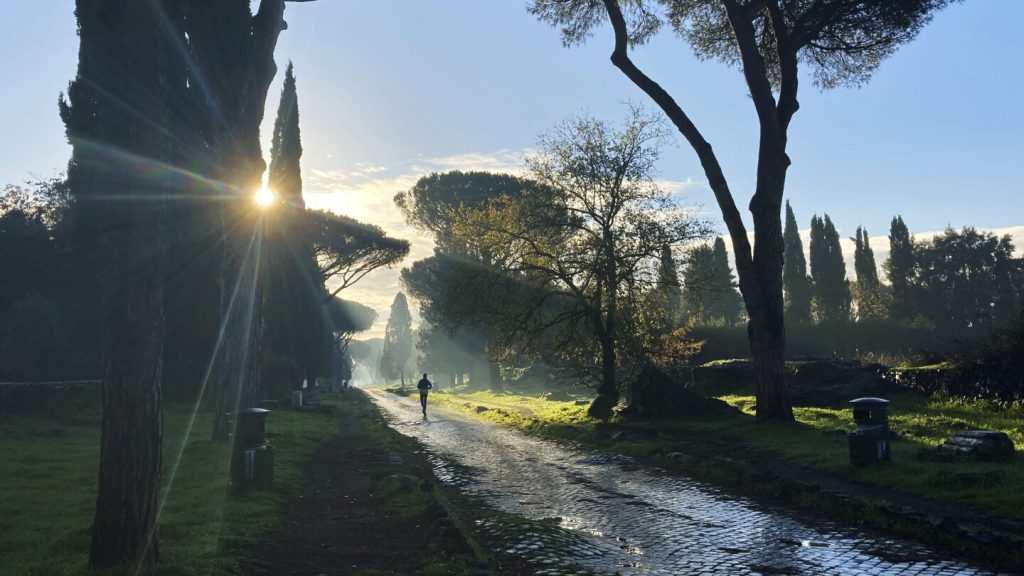The Appian Way, known as the “Queen of Roads,” has been added to the UNESCO World Heritage List, making it Italy’s 60th entry on the prestigious list. This ancient Roman road, stretching over 800 kilometers and built in 312 B.C., played a crucial role in connecting Rome with the southern part of the peninsula. It marked a significant advancement in road construction and allowed Roman legions to conquer territories swiftly and efficiently. The bid for its inclusion in the UNESCO list was successful during the 46th session of the World Heritage Committee held in New Delhi.
UNESCO highlighted the historical significance and engineering marvel of the Appian Way, referring to it as an ensemble of engineering works that showcase the advanced technical skills of Roman engineers. This ancient road is not only a piece of history but also a popular destination for tourists and locals alike. It has been transformed into an open-air museum and a vast green area where people can engage in leisure activities such as biking, hiking, and visiting monuments. The Appian Way is now a protected archaeological park, preserving its historical and cultural value for future generations.
Originally conceived as a strategic military road, the Via Appia played a crucial role in advancing towards the East and Asia Minor, ensuring seamless access and rapid conquests for the Roman legions. Over time, the road facilitated growth in cities it connected and led to the emergence of new settlements, promoting agricultural production and trade. The UNESCO recognition acknowledges the historical significance and cultural heritage of the Appian Way, recognizing it as a testament to Roman engineering and infrastructure development.
The Appian Way is composed of 22 parts that together represent a diverse range of engineering works, including monumental structures and land reclamation projects. This ensemble of engineering works showcases the technical prowess of Roman engineers and their ability to construct durable and efficient roads that stood the test of time. The UNESCO World Heritage designation not only honors the historical importance of the Appian Way but also highlights its role as a symbol of Roman ingenuity and craftsmanship.
The inclusion of the Appian Way in the UNESCO World Heritage List is a significant milestone for Italy, underscoring the country’s rich cultural heritage and historical legacy. With its 60th entry on the list, Italy continues to preserve and promote its cultural treasures for future generations to appreciate and learn from. The recognition of the Appian Way as a World Heritage Site reaffirms its global significance and ensures its protection and conservation for years to come. This ancient road continues to captivate visitors with its historical charm and scenic beauty, offering a glimpse into the past while serving as a recreational area for modern-day activities.


